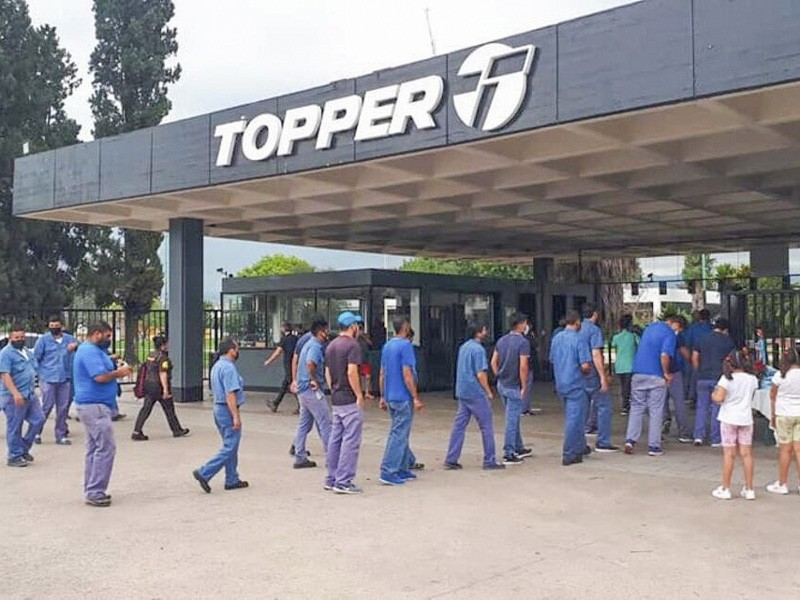


Recently, TOPPER Argentina announced the cessation of contracts for 85 workers at its manufacturing plant in Aguilares, Tucumán, "due to the brutal drop in sales."
The company, which has a staff of 1,000 workers, stated that the decision was taken as a "last resort" because the prospects in the sector are not good. The textile, clothing, and footwear industry relies on sales in the domestic market, and severely depressed real wages are leading to negative consequences, with estimates of a 40% drop in sales. There is also fear of import competition.
After successive changes of ownership, TOPPER has been owned by Brazilian entrepreneur Carlos Wizard Martins since 2019, who also manages the brand in Brazil. In 2018, during another critical period, the company laid off more than 500 people.
Another case is the BICONTINENTAR factory in Chivilcoy, which produces brands such as DIADORA, UNDER ARMOUR, LE COQ SPORTIF, NEW BALANCE, and MONTAGNE, among others, which in December decided to terminate the contracts of 100 workers due to difficulties in importing materials and components, and given the foreseeable decline in activity due to low demand.
It is worth noting that this establishment, like many others in the country, diversifies its production, with a large percentage of assembly using imported components.
When consulted, the footwear SME sector, unanimously expressed a critical diagnosis of the situation, where uncertainty prevails regarding the evolution of the conflictive political, economic, and social scenario, which is strongly affecting demand.
Another risk factor for Argentine industrialists is the increase in imports, in light of the latest government measures that simplify and facilitate the entry of merchandise from abroad. For example, the presentation of the Sworn Declaration of Product Composition (DJCP), which required details of the composition and manufacture of supplies and final products entering the country, will no longer be necessary.
As a reference, the latest indices for January 2024, published by ABICALÇADOS, reported a 24.3% decrease in imports from Brazil to Argentina compared to the same month the previous year. Meanwhile, according to INDEC, imports of footwear and parts from China decreased by 10% in January 2024 compared to January 2023.
In this context, importers are awaiting new government measures that could favor increased product entry from abroad.
RELATED ARTICLES:
- ALERT IN FOOTWEAR. Is job instability making a comeback?
- Footwear workers to receive staggered wage increases until August 2024